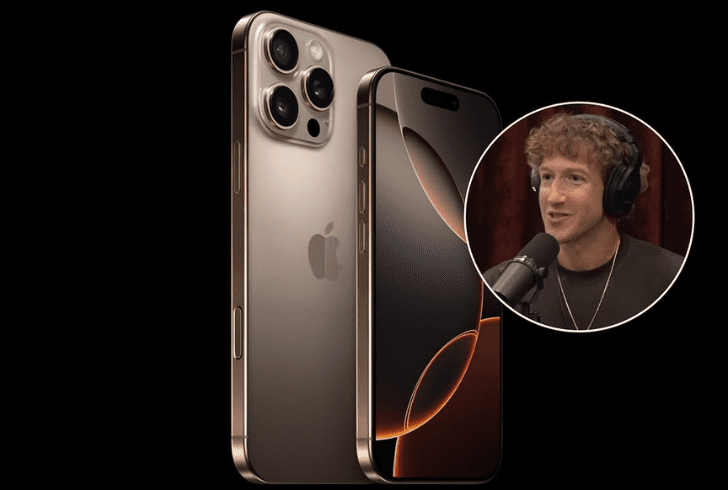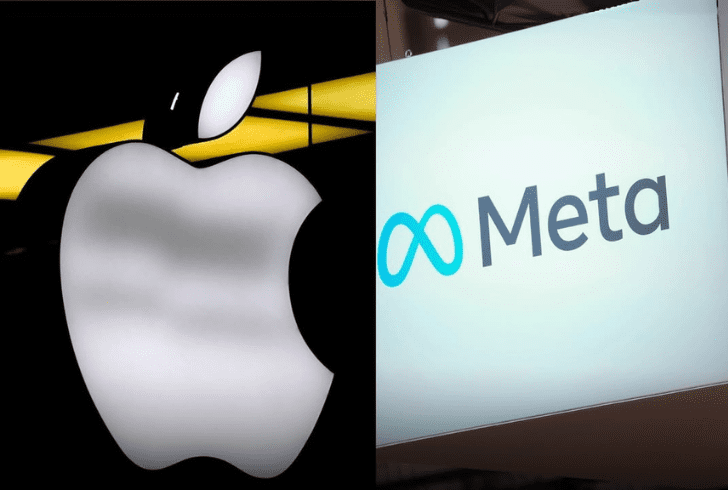Mark Zuckerberg, the CEO of Meta, has not held back when voicing his frustrations with Apple. In a recent "Joe Rogan Experience" podcast interview, he took direct aim at the tech giant, continuing a long-standing rivalry between the two companies. According to Zuckerberg, Apple has failed to innovate significantly since the release of the iPhone and has focused more on monetizing its ecosystem at the expense of users and developers.
Apple’s Lack of Innovation Since the iPhone
During the interview, Zuckerberg acknowledged Apple's early success, praising the company for creating the groundbreaking iPhone. However, he pointed out that Apple hasn’t made any major advancements since then. “Steve Jobs invented the iPhone, and now they’re just kind of sitting on it 20 years later,” Zuckerberg stated.
He argued that instead of delivering groundbreaking products, Apple has relied on strategies like imposing fees on developers and creating an ecosystem that makes it difficult for competitors to integrate their products.
The "30% Tax" on Developers
One of Zuckerberg’s primary criticisms involved Apple’s 30% commission on app developers. He described this fee as a way for Apple to “squeeze people” to compensate for declining iPhone sales. According to Zuckerberg, this so-called "tax" places unnecessary pressure on developers and stifles innovation.

Instagram | spiritualword | Mark Zuckerberg questions Apple’s innovation.
This sentiment is echoed by others in the tech industry who believe Apple's approach limits competition. By creating a tightly controlled ecosystem, Apple ensures its own products, like AirPods, dominate the market. Zuckerberg mentioned that Apple's refusal to grant Meta access to certain protocols during the development of the Ray-Ban Meta glasses was another example of this exclusivity.
Apple's Ecosystem - A Closed Wall
Zuckerberg expanded on how Apple’s closed ecosystem impacts other companies. He stated, “They build stuff like AirPods, which are cool, but they’ve just thoroughly hamstrung the ability for anyone else to build something that can connect to the iPhone in the same way.” This limited connectivity, he suggested, prevents consumers from exploring alternatives and locks them into Apple's ecosystem.
The issue became particularly evident when Meta was working on its smart glasses project in collaboration with Ray-Ban. Apple declined to let Meta use the same protocols it uses for AirPods, making it difficult for the glasses to integrate seamlessly with iPhones. Zuckerberg believes Apple justified this decision by citing privacy and security concerns, though he suggested these were more about protecting its competitive edge than genuine safety concerns.
Broader Industry Concerns
Mark Zuckerberg is not the only one voicing concerns about Apple’s practices. Andrew Bosworth, Meta’s Chief Technology Officer, has also criticized Apple’s business model. In an interview with "Stratechery," Bosworth expressed worry about Apple’s ability to “self-preference” its products due to the locked-down nature of its devices. He highlighted AirPods as a prime example of how Apple prioritizes its own products over those of competitors.
These criticisms reflect broader debates in the tech industry about fairness and competition. Many believe Apple’s ecosystem policies give it an unfair advantage while limiting innovation from other companies.
The Ongoing Feud Between Apple and Meta

Instagram | valuetainment | Mark Zuckerberg critiques Apple amid Meta rivalry.
The rivalry between Meta and Apple dates back to at least 2014. Over the years, Zuckerberg has publicly criticized Apple’s pricing, app store policies, and privacy regulations. Recently, he has also taken aim at Apple’s Vision Pro VR headsets, a product that competes directly with Meta’s virtual reality initiatives.
Despite these criticisms, Zuckerberg acknowledged during the podcast that the tech industry remains dynamic. He noted, “The good news about the tech industry is that it’s just super dynamic, and things are constantly getting invented.” He expressed optimism that companies failing to innovate would eventually be replaced by those that deliver better solutions.
A Look Ahead for Tech Giants
While Mark Zuckerberg continues to voice his frustrations with Apple, his comments reflect a larger conversation about innovation, competition, and consumer choice in the tech industry. Apple’s approach to maintaining its ecosystem raises important questions about whether its policies truly benefit users or hinder progress.
As competition heats up between Meta and Apple, both companies will likely remain at the forefront of shaping the tech landscape. For now, Zuckerberg’s remarks highlight a growing push for greater transparency and openness in the industry.